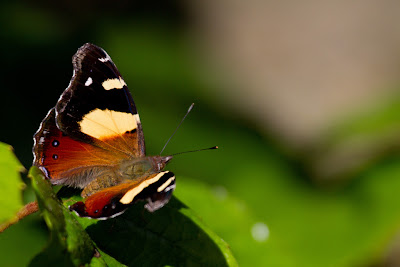Male Australian King Parrot - Alisterus scapularis
The male Australian King Parrot is the only parrot with a completely red heard. During mating season their habitat is limited to heavier coastal and mountain forests on the south east coast of Australia. Once they have nested, king parrots will frequent farms, parks and even gardens in the area.
More photographs inside.
Female Australian King Parrot - Alisterus scapularis
Although these Parrots frequent parks and gardens, including ours, I hadn't got around to photographing them. While we were at the Barrington tops I noticed a number of them around and took the opportunity to capture these images. It wasn't too easy to get close to them but fortunately I had the 100-400mm lens with me.
Male Australian King Parrot - Alisterus scapularis
The male and the female are easily identifiable as the female has a green head and the male's head is completely red in colour. The eye of the adult birds is yellow while juveniles have brown eyes. The birds are generally found in pairs or small flocks. I noticed that the birds which frequent camp sites are a lot easier to approach as they are used to people feeding them.
Male Australian King Parrot - Alisterus scapularis
All these photographs were captured with the Canon 7D and the 100-400mm combination. I loved the bokeh on the first image and, as a result, decided to use it as the lead image for this post.
Male Australian King Parrot - Alisterus scapularis

































